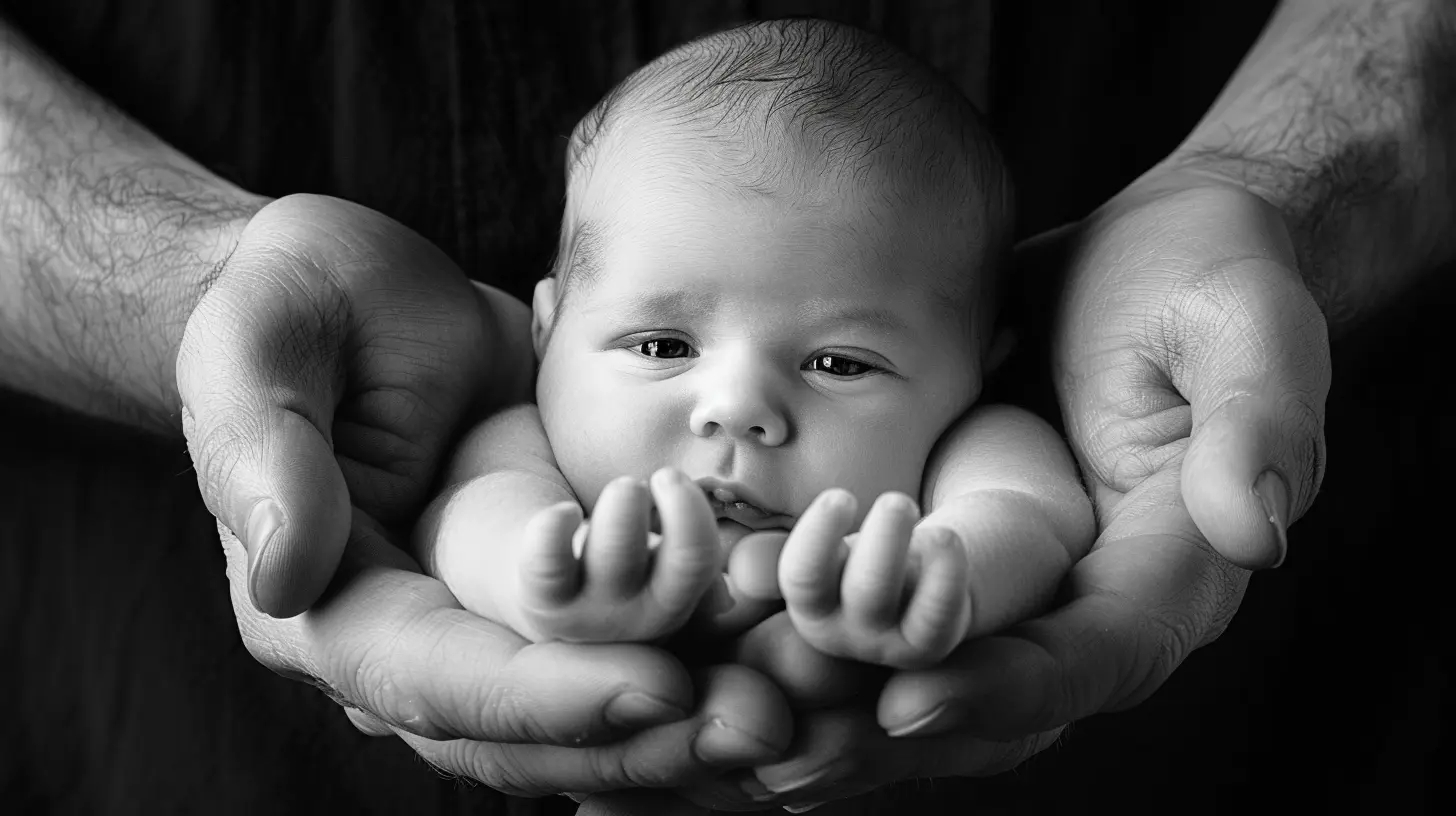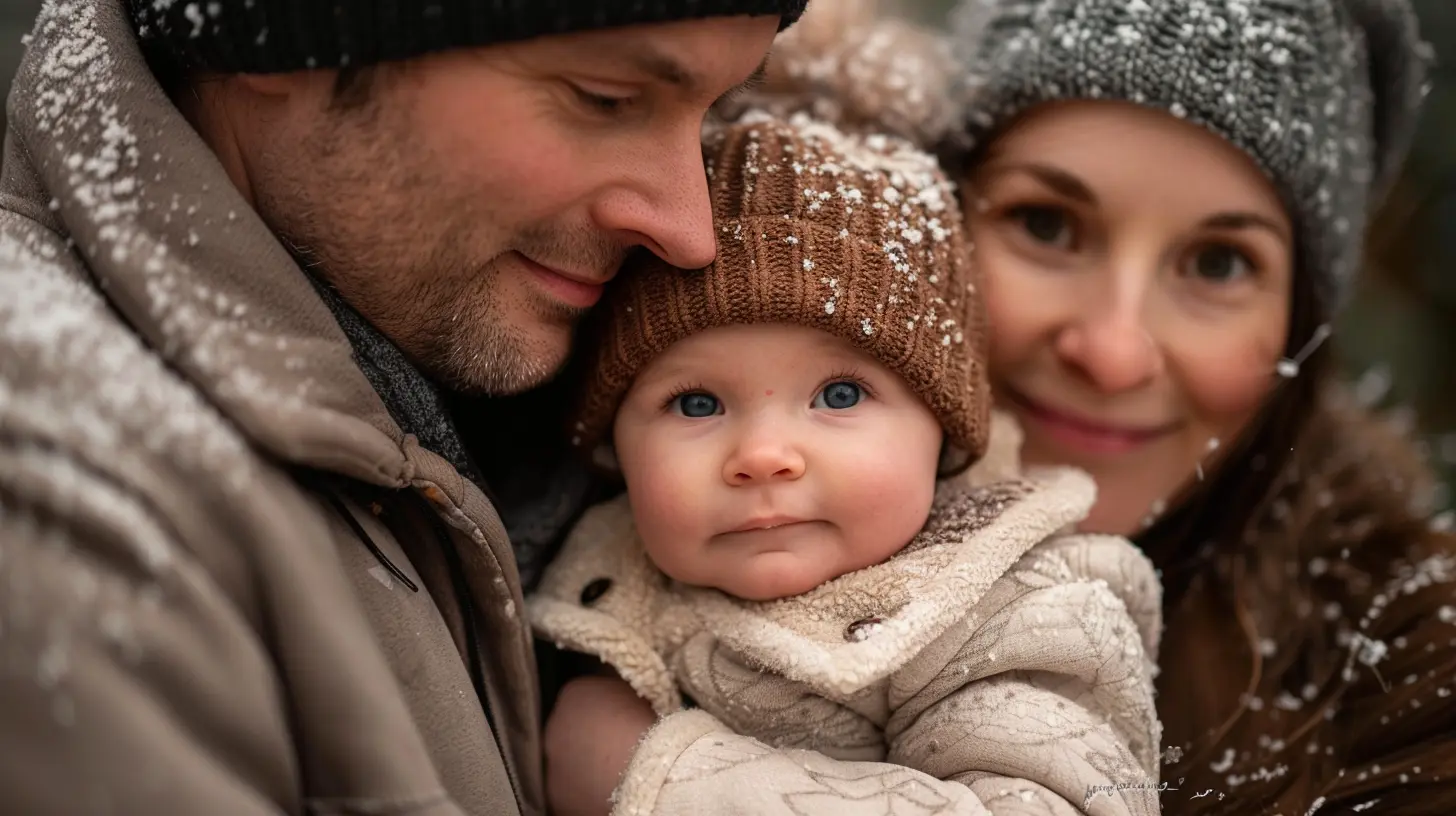Creating Secure Attachments: Tips for New Parents on Developing Emotional Bonding
8 November 2025
Becoming a parent is like being handed the most intricate jigsaw puzzle in the world—with no picture on the box. You’re expected to figure out how the pieces fit, and one of the biggest, most essential pieces is developing a secure attachment with your baby. Let’s be real—this stuff doesn’t come with a manual. But the good news? Emotional bonding is a natural process, and you’ve already got what it takes inside you.
In this post, we’re going to talk about how to build that deep, comforting emotional tether that helps your baby feel safe, loved, and confident in the world. It’s not about being perfect—it’s about being present.
What Is a Secure Attachment Anyway?
Before anything else, let’s get on the same page. A secure attachment is the emotional bond that develops between a baby and their caregiver—most often a parent. It's rooted in trust and consistency. When your baby knows they can count on you to meet their needs, both physical and emotional, that’s when attachment starts to fuse.It's like emotional Wi-Fi—you may not see it, but when it’s strong, everything just connects better.
Why Secure Attachment Matters
A secure attachment isn’t just about cuddles and coos (though those are big wins too). It impacts your child’s entire life: how they build relationships, handle stress, solve problems, and even how they see themselves.Here’s what kids with secure attachments tend to grow up with:
- Higher self-esteem
- Better emotional regulation
- Strong social skills
- Greater independence
- Healthier relationships
That’s one powerful hug, right?
Tip #1: Respond With Consistency
When your baby cries at 3 a.m. and you stumble in half-asleep to feed or soothe—guess what? You’re building trust.Babies don’t have words, so crying is their version of texting: “Hey, I need you.” When you respond—whether it's with rocking, nursing, changing a diaper, or just holding them—you’re sending a text back: “Got you, love.”
Over time, that back-and-forth rhythm becomes your baby’s emotional foundation.
Quick tip:
You can’t “spoil” a newborn. Meeting their needs now doesn’t make them clingy later. It makes them secure enough to explore the world on their own terms later on.
Tip #2: Eye Contact, Cuddles, and Smiles Go a Long Way
Ever locked eyes with your baby and felt your heart do a little backflip? That’s not just the baby fever talking. Eye contact, gentle touch, and facial expressions are how your baby learns to read emotions.These simple interactions are like charging their emotional battery.
Try this during routine activities:
- During feedings: Look into their eyes, smile, and talk to them.
- Bath time: Make it playful with songs and gentle touch.
- Diaper changes: Narrate what you’re doing and flash a silly grin.
It’s not rocket science. It’s human connection.
Tip #3: Practice Babywearing or Skin-to-Skin Contact
Holding your baby close isn’t just good for bonding—it’s literally good for their brain development. Babywearing and skin-to-skin (especially in those early days) help regulate your baby's heart rate, body temperature, and even stress hormones.Think of it as emotional swaddling—it wraps them in your presence.
And guess what? It helps you too. Oxytocin (aka the "love hormone") floods both your systems when you're close, making both of you feel calm and connected. Win-win.
Tip #4: Talk to Your Baby—Even If They Don’t Understand (Yet)
You might feel a bit silly narrating your lunch prep or discussing how tired you are out loud. But your baby? They’re all ears.Babies learn language from the rhythm, tone, and emotional cues in your voice even before they understand words. More importantly, it helps them feel seen and involved.
So go ahead and chat about your day, sing songs, or tell them how cute they are for the 87th time—it all counts.
Tip #5: Recognize and Respect Their Cues
Ever notice your baby suddenly turns their head away, squirms, or starts fussing mid-play? That’s them saying, “I need a break.” Tuning into these little cues builds trust.By respecting their boundaries, you’re teaching them that their feelings matter and they’re safe to express themselves.
Over time, this builds emotional intelligence—not just for them, but for you too.
Tip #6: Take Care of Yourself (Seriously)
Let’s be honest: Parenting is beautiful, but it’s also draining. You can't pour from an empty cup, and your baby needs you full(ish)—they don’t expect perfection, just presence.Sleep when you can. Accept help. Take a walk. Eat a meal sitting down (bonus points if it’s not rushed). Your mental and physical well-being affects your bond with your baby more than you might think.
Remember, your baby doesn’t need a super-parent. They need a human one who’s doing their best.
Tip #7: Accept the Messy Moments
There will be times when you feel disconnected—when the cries won’t stop, and you’re running on fumes. That’s normal. Bonding isn’t a straight line; it’s a dance with steps forward, backward, and sideways.The magic doesn’t come from never messing up—it comes from repairing after the mess. Saying things like:
- "It’s okay, I’m here now."
- "That was hard, huh? We’re okay."
These little reassurances rebuild trust every single time.
Tip #8: Find Your Own Rhythm
You don’t need to follow every parenting trend or listen to every opinion (because, let’s be real—everyone’s got one). Trust your gut. Pay attention to what works for you and your baby.Some days you’ll rock this parenting thing. Other days, it’ll feel like you're trying to herd cats while blindfolded. That’s still parenting.
Bit by bit, you’ll find the rhythm that fits your family.
Tip #9: Encourage Safe Exploration
As your baby grows, their curiosity explodes. When you create a secure attachment, they feel brave enough to explore their world—then come back to you for snuggles and reassurance.It’s kind of like being their emotional home base. They’ll run off to play, but glance back to make sure you’re still there. That tiny look? That’s trust in action.
Tip #10: Don’t Compare—Every Bond Is Unique
It’s tempting to scroll through social media and wonder why your friend’s baby seems SO connected while yours cries every time you try tummy time. But no two bonds are alike, and no two babies are wired the same.Your bond will unfold in its own time and way. And that’s more than okay—it’s beautiful.
Frequently Asked Questions
What if I don’t feel bonded right away?
Totally normal. Sometimes bonding takes days, weeks, or longer. Don’t guilt yourself. Keep showing up, cuddling, talking, and being present. The connection will come.Can dads or non-birthing parents build a secure attachment too?
Absolutely! Bonding isn’t about biology—it’s about consistent, loving care. Whether you're bottle-feeding, changing diapers, reading stories, or rocking them to sleep—you’re bonding.What if I had a tough childhood?
You’re not doomed to repeat it. In fact, being aware gives you a head start. By being intentional, you can create a new narrative—one full of love, safety, and healing.Final Thoughts
Creating secure attachments isn’t about being the “perfect parent”—it’s about being a trustworthy one. Your baby doesn’t need you to have all the answers. They just need to know that you’re there, even when you don’t.Whether you're rocking them to sleep, singing badly out of tune, or just silently holding them through the tears—every moment counts. Every gesture builds that invisible, unshakable string between your heart and theirs.
Parenting is messy, beautiful, exhausting, and magical all at once. And through it all, you’re laying the emotional groundwork for a lifetime of confidence, empathy, and connection.
Now take a deep breath—you’ve got this.
all images in this post were generated using AI tools
Category:
Attachment ParentingAuthor:

Max Shaffer
Discussion
rate this article
1 comments
Kyle McNeely
Love builds strong bonds!
November 8, 2025 at 4:37 AM

Max Shaffer
Absolutely! Love is the foundation of secure attachments, fostering connection and trust between parents and children.


